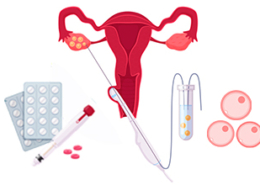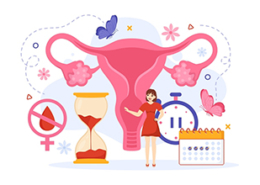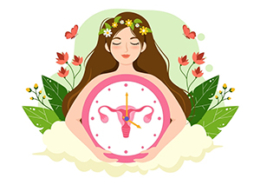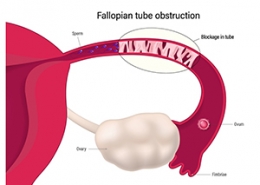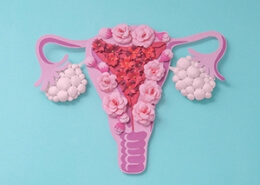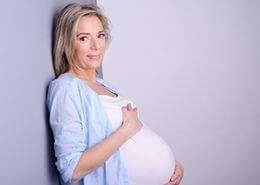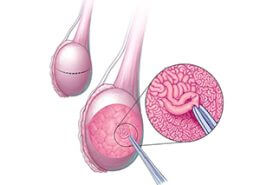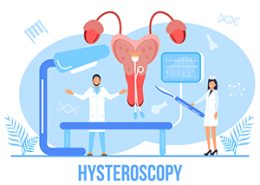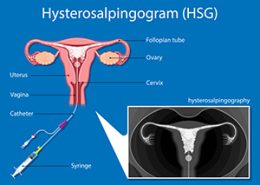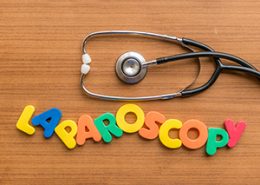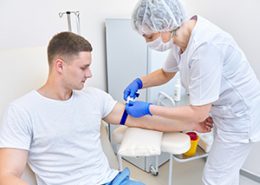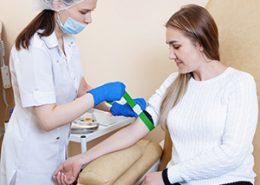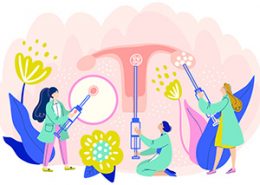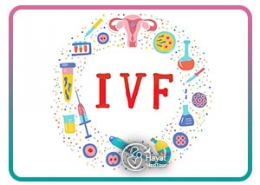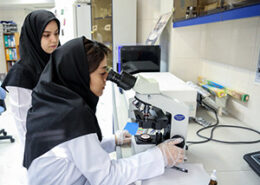The best supplements for improving women’s fertility
Many successful pregnancies occur when couples plan to conceive and adequately prepare themselves. Lifestyle improvements, adopting a healthy diet, quitting smoking, cutting down on alcohol intake, exercising regularly, and maintaining a balanced weight can enhance the likelihood of pregnancy. Studies suggest that adding vitamins and micronutrients can improve egg and sperm quality, and help regulate the menstrual cycle and ovulation. Therefore, doctors recommend that couples consider taking nutritional supplements to boost egg and sperm health before trying to conceive. Couples should consider using nutritional supplements to improve egg and sperm quality before trying to conceive. This article delves into the link between nutrition, dietary supplements, and fertility, focusing on specific supplements that can enhance egg quality and women’s fertility.
Why is the egg’s quality important in pregnancy?
Trying to conceive is a short journey for some couples and a long and difficult journey for others. Knowing the menstrual cycle and predicting the exact time of ovulation, the proper functioning of the thyroid gland, sufficient production of cellular energy, the functioning of the body’s immune system, the proper quality of eggs and sperms, and the preparation of the uterus are among the most effective factors for having a healthy pregnancy. Learn more about common causes of female infertility: What are the causes of Female Infertility?

Ovulation disorders usually arise from hormonal imbalances, polycystic ovary syndrome (PCOS), chronic conditions such as diabetes, obesity, stress, etc. This problem disrupts the regularity of the ovulation cycle, making it challenging to predict ovulation timing and often impeding the maturation and release of eggs from the ovaries. As a result, women with ovulation disorders may face difficulties in getting pregnant.
Another major reason for female infertility is diminished ovarian reserves. Ovarian reserve refers to the quantity and quality of eggs in the ovaries. Women have all their ovarian reserves at birth. Therefore, over time, the body loses its ability to produce eggs. Ovarian reserve typically declines with age, but various factors such as diseases, unhealthy lifestyles, chemotherapy, surgeries, genetic issues, etc., can also lead to a diminished ovarian reserve at a young age. This can cause irregular monthly periods and impact ovulation, ultimately reducing the likelihood of conceiving.
Moreover, the quality of the eggs is directly related to the ovarian reserve; as the ovarian reserve decreases, the quality of the eggs also diminishes. Consequently, it becomes harder to develop a high-quality embryo in women with diminished ovarian reserves.
In many cases, improving lifestyle and having a healthy and nutritious diet can help reduce the symptoms of ovulation disorders and enhance the quality of eggs. Therefore, the consumption of food supplements containing vitamins and micronutrients can strengthen fertility in women and increase the chances of pregnancy. (Read about ways to increase the quality of eggs: How to improve egg quality for pregnancy & IVF)
The role of lifestyle in the quality of eggs
Eggs are stored in the ovaries as small follicles that initiate the ovulation process. One or more follicles grow and are released upon reaching maturity. Eggs typically take around 90 days to go from the start of development to reaching maturity. Factors like a nutritious diet, consistent exercise, maintaining a balanced weight, adequate sleep, etc., can influence the quality and health of the eggs. Considering these factors three months before attempting conception can enhance egg quality and boost the likelihood of successful pregnancy in women. Key elements influencing egg health and quality include.
1- Having a healthy and nutritious diet:
Consuming a healthy and nutritious diet can impact egg quality in various ways. Vegetables and fruits, rich in vitamins and minerals, aid in combating free radicals and protecting eggs from damage. Intake of unsaturated fats like omega-3 promotes hormonal balance, supporting ovulation and the growth and maturation of eggs.

Carbohydrates provide the energy needed for ovulation. However excessive consumption of refined carbohydrates causes weight gain and decreases blood supply to the ovaries, disrupting the ovulation process and aggravating the symptoms of polycystic ovary syndrome (PCOS). Therefore, it is recommended that women minimize the consumption of refined carbohydrates such as white bread and replace them with whole grains before pregnancy.
On the contrary, consuming processed foods, fast foods, canned goods, sweets, and caffeine can disturb ovarian function and diminish egg quality.
Research indicates that maintaining a healthy and nutritious diet before undergoing IVF can enhance embryo quality and improve the likelihood of treatment success. Learn more about proper foods to eat before IVF: The IVF Diet: Eating for Fertility Success
2-Regular exercise
Physical activity and regular exercise increase blood supply to the ovaries and uterus and improve the quality of eggs. On the other hand, regular exercise helps to balance hormones have a balanced weight, and improve the ovulation process. It should be noted that light and gentle exercise helps to increase women’s fertility, but heavy exercise increases the risk of ovulation interruption and infertility in women.
3- Avoiding smoking and alcohol consumption
studies show that alcohol consumption can disturb the balance of hormones and disrupt ovulation. The chemicals in cigarettes cause damage to the DNA of the egg and increase the number of abnormal eggs. Therefore, it is recommended to stop smoking and drinking alcohol before trying to get pregnant and before undergoing IVF. Learn more about the effects of smoking on fertility: How smoking affects reproductive health
4- Managing stress
Stress triggers the release of hormones in the body, disrupting the ovulation process and hindering the production of high-quality eggs. Therefore, maintaining a sense of calm and cultivating positive thinking can enhance the likelihood of pregnancy in women.
5-Having a sufficient sleep
Getting enough sleep is essential for reproductive health, as it triggers the release of hormones necessary for reproduction. This vital rest not only enhances the health and quality of eggs but also promotes relaxation and effective stress management.
Essential nutrients and vitamins to improve egg quality
Over the years, numerous scientific studies have explored the impact of vitamins and minerals on women’s fertility and maternal health. Research findings indicate that regular intake of vitamins and micronutrients plays a key role in regulating hormonal levels, improving egg health, and enhancing the likelihood of a successful pregnancy.
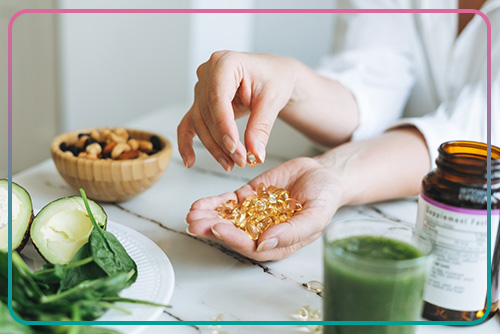
A diverse and nutritious diet is the main source of essential vitamins and minerals for the body. In addition to a healthy diet, taking supplements can also help meet the body’s mineral needs. Certain vitamins and minerals are crucial for enhancing the health and quality of eggs, including:
-
Antioxidants
Oxidative stress can cause cell damage and reduce egg quality. In addition, oxidative stress can be one of the causes of miscarriage. Antioxidants are the body’s most important defenders against free radicals and oxidative stress. Vitamins A, C, and E are valuable sources of antioxidants. Foods like dark leafy vegetables, berries, and nuts such as almonds and walnuts are rich in antioxidants.
-
Omega-3 fatty acids
Omega-3 fatty acids are recognized for their anti-inflammatory and hormone-regulating properties. They can help create a balanced hormonal environment for the growth and maturation of high-quality eggs. Additionally, Omega-3 can delay the aging of the ovaries and help maintain women’s fertility. Sources of Omega-3 include fatty fish like salmon, flax seeds, and walnuts.
-
Folate
Folate is a critical B vitamin that is essential for the synthesis and integrity of egg DNA. It is vital to ensure sufficient folate intake before and during the early stages of pregnancy. Dark leafy vegetables like spinach, along with avocados and lentils, are excellent sources of folate, which can significantly enhance egg quality.
-
Vitamin D
Adequate intake of vitamin D causes hormonal balance in the body and helps to improve the process of ovulation and regularity of the menstrual cycle. Sunlight, oily fish, egg yolks, and dairy products enriched with vitamin D are the main sources of this vitamin. In case of a lack of vitamin D in the body, doctors recommend taking vitamin D supplements.
-
Vitamin B
A deficiency in B vitamins is linked to infertility issues in women. Vitamin B6 plays a crucial role in maintaining the balance between the hormones estrogen and progesterone, and it is essential for the proper functioning of the female reproductive system. Vitamin B2 helps in breaking down proteins and other nutrients, and it is an integral part of cellular metabolism. This vitamin also helps in providing energy to eggs. Vitamin B9, also known as folic acid, can reduce the risk of congenital defects in the nervous system of the fetus by improving the quality of the egg.
-
Iron
proper oxygen supply to the ovaries and the reproductive system leads to their proper functioning. Iron is one of the important elements in the process of transferring oxygen to tissues and organs. Therefore, getting a sufficient amount of iron can help improve the function of the ovaries and increase the quality of the eggs. The body is not able to produce iron, but it can receive and store iron from food sources. Foods rich in iron include red meat, liver, egg yolk, whole grains, and legumes. If the body doesn’t get enough iron from the diet, iron supplements are recommended.
-
Zinc
Zinc is one of the elements affecting the health of eggs. Zinc helps the maturation of eggs and improves the quality of eggs. In addition, when a sperm fertilizes an egg, zinc prevents more sperm from passing through the egg membrane and helps the quality of the embryo.
-
Coenzyme Q10
Coenzyme Q10 is an antioxidant that helps the cell division of the egg. The level of this enzyme in the body decreases with age. Therefore, it is better for women over 40 years old to use supplements containing this enzyme to improve the quality of the eggs and provide the necessary energy for the reproduction of egg DNA.
The best supplements to improve egg quality
When trying to get pregnant, many factors such as age, genetics, medical history, etc. are out of the couple’s control. But some factors can be controlled and improved. Ensuring that you get enough nutrients and vitamins needed by the body to have a healthy and successful pregnancy is one of these things. Research shows that certain nutrients can affect egg quality, regular ovulation, successful implantation, and embryo development. Therefore, the use of medicinal supplements can prevent the lack of these nutrients in the body and by reducing the level of oxidative stress in the mother’s body, it can reduce the time of trying to conceive and increase the chances of pregnancy.
Some of the best medicinal supplements for strengthening the eggs and also increasing the fertility of women are:
1- Coenzyme Q10
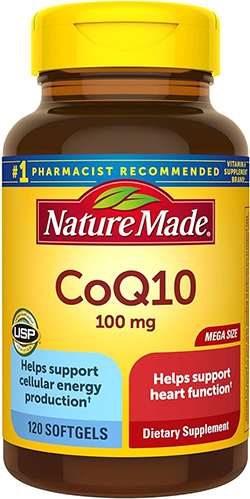
Coenzyme Q10 (CoQ10) is a powerful antioxidant that helps protect the DNA of eggs from damage caused by free radicals. It also improves fertility in women. Additionally, this coenzyme plays a role in producing cellular energy, assisting in cell division, and supporting the replication of egg DNA. Although small amounts of CoQ10 can be found in certain foods, people who are planning to conceive may benefit from taking supplements containing CoQ10. As we age, the body’s ability to produce CoQ10 decreases.
Taking Co-Q10 supplements over the age of 40 can somewhat reduce the effect of age on the quality and number of eggs and increase the chance of pregnancy. Research shows that daily consumption of 600 mg of Coenzyme Q10 can increase the egg quality. Co-Q10 supplementation is recommended in conditions such as endometriosis, polycystic ovaries, premature ovarian failure, menstrual irregularities, infertility with unknown causes, repeated miscarriages, and infertility in repeated embryo transfer because it helps to solve these problems and increases the fertility of women, especially women. It is affected by old age.
In addition to improving the egg quality, this co-enzyme strengthens sperm and increases its motility. Therefore, the use of this supplement is also recommended for men. Learn more about the best supplements for improving men’s fertility: The best fertility supplements for men
2-FertilAid for women
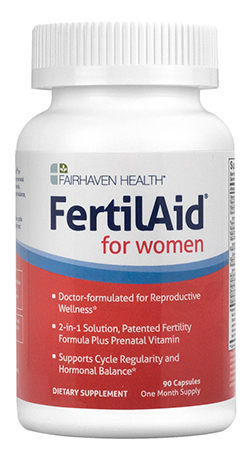
FertilAid capsules for women contain various vitamins and minerals such as zinc, folic acid, selenium, iron, vitamins A, C, E, and B6, and some plant compounds and antioxidants that are useful and necessary for pregnancy.
The beta-carotene in FertilAid for women strengthens the immune system during pregnancy. The antioxidant compounds of this supplement support the health of the egg by helping to maintain the integrity of the egg cells.
The zinc in this product is crucial for women’s reproductive health as it protects female sex cells. Aside from preventing hair loss, zinc also aids in improving mood during the premenstrual period. Some doctors recommend Fertilide tablets to alleviate symptoms of ovarian dysfunction, as the nutrients in the product impact ovulation quality and hormonal balance.
3- OvaBoost
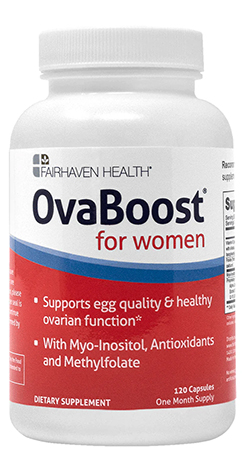
Ovaboost capsule contains a unique formula that includes three key compounds: myoinositol, folic acid, and melatonin. Folic acid is crucial in preventing neural tube defects in fetuses, making it important for all women of reproductive age to ensure they consume enough folic acid. Research indicates that women undergoing IVF treatment can experience significantly improved egg quality when they take folic acid in combination with two powerful antioxidants, myoinositol and melatonin.
Ovaboost capsules also contain co-enzyme Q10. This co-enzyme plays a vital role in energy production in the egg cells. During fertilization, it supports cell division and embryo growth, leading to successful embryo implantation in the uterine wall.
Evaboost capsule contains three additional antioxidants: vitamin E, grape seed extract, and alpha lipoic acid. These antioxidants protect egg cells from the damaging effects of free radicals. This product is free from wheat, gluten, yeast, dairy, animal products, artificial colors, and artificial preservatives.
The use of medicinal supplements is recommended not only to women who are trying to conceive naturally but also to women who are planning to undergo IVF. These supplements can help improve the quality of eggs and prepare the uterus for embryo implantation. Therefore, taking medicinal supplements increases the chance of IVF success.
Conclusion: improve egg quality with supplements.
The quality of eggs and the fertility of women depend not only on age and genetics but also on lifestyle and the nutrients the body receives. Obtaining a sufficient amount of vitamins and nutrients helps the proper functioning of the ovaries and can enhance the quality of the eggs and the regularity of the ovulation cycle. Some of the minerals and vitamins required for egg health and quality are provided by consuming healthy and varied foods. Taking supplements to enhance women’s fertility can compensate for the lack of certain nutrients and help improve the quality of eggs. If you are trying to get pregnant or are planning to do IVF, you can start taking medical supplements after consulting your doctor.
References:

